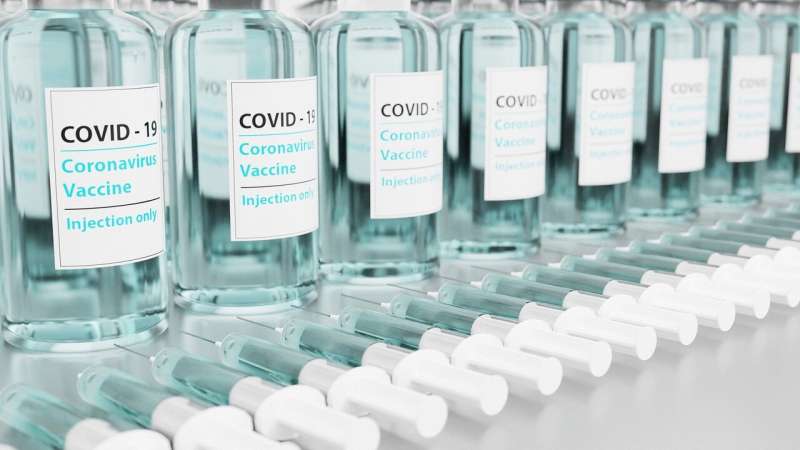Study observes worse COVID-19 vaccine response in patients taking glucocorticoids or B-cell therapies

New research presented this week at ACR Convergence, the American College of Rheumatology’s annual meeting, shows that people with chronic inflammatory diseases, such as rheumatoid arthritis (RA), who take immunosuppressive therapy appear to have an impaired immunity response to SARS-CoV-2, the coronavirus that causes COVID-19, vaccines. Patients currently on glucocorticoids or B-cell depleting therapy appear to have an even more severely impeded vaccine response.
People with chronic inflammatory diseases often are treated with immunosuppressive therapy, but these medications can increase their risk of severe COVID-19 disease. New, mRNA-based vaccines to SARS-CoV-2 can provide robust protection for these vulnerable patients. In this new study, researchers wanted to find out how effective the new vaccines were for these at-risk patients and to stratify their risk of impaired COVID-19 immune responses based on their immunosuppressive therapy.
“Our study’s findings support several important conclusions. First, nearly 90% of the patients on immunosuppressants for the treatment of systemic autoimmune diseases can mount antibody responses. Secondly, however, their magnitude of antibody titers was generally reduced about threefold compared to those not on immunosuppression,” says Alfred Kim, MD, Ph.D., Assistant Professor, Division of Rheumatology, at Washington University School of Medicine St. Louis and the study’s co-author. “Finally, certain medications strongly drive the reduction in antibody titers, such as B-cell depleting agents, glucocorticoids and JAK inhibitors.”
To assess vaccine immune response and adverse reactions in people with chronic inflammatory diseases, the researchers collected blood samples from 197 adults with chronic inflammatory disease and 53 immunocompetent controls both before their first vaccine dose and one to two weeks after the second shot. They measured serum anti-SARS-CoV-2 spike IgG+ binding and neutralizing antibody titers to assess the magnitude and quality of patients’ immune response after vaccination.
Compared to patients with competent immune systems, people with chronic inflammatory disease had a threefold reduction in antibody titers and SARS-CoV-2 neutralization to the common D614G variant. Two immunosuppressive therapies seemed to impair humoral responses to the vaccine even more: Patients on B-cell depleting drugs had a 36-fold reduction and patients on glucocorticoids had a 13-fold reduction.
Other immunosuppressive treatments also blunted antibody titers, including Janus kinase inhibitors and antimetabolites, including methotrexate. Targeted therapies for chronic inflammatory diseases, including TNF-inhibitors, IL-12 and IL-23 inhibitors, and integrin inhibitors, only had a modest impact on antibody formation and neutralization after patients were vaccinated.
Due to the ongoing pandemic and COVID-19’s potentially severe risks for immunosuppressed patients, this group’s research is ongoing. They are currently trying to determine cross-variant neutralization, long-term antibody and neutralization titers and T-cell responses for people in this population.
Source: Read Full Article
